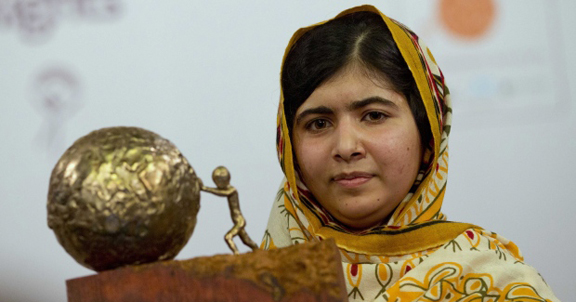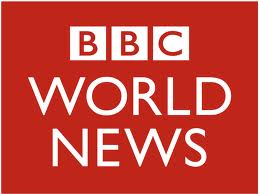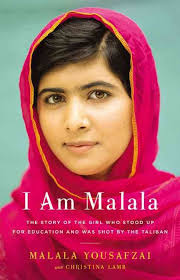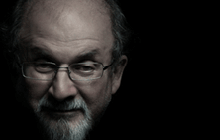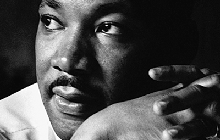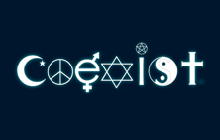The following articles in this section provide more context and updates on Malala’s life and influence, from her initial hospital release to her eventual Nobel Peace Prize achievement in 2014.
Girl Shot by Pakistani Taliban Is Discharged From Hospital (Source) – New York Times, January 4, 2013
Malala Yousafzai, the Pakistani schoolgirl shot in the head three months ago by the Taliban for advocating the education of girls, has been discharged from a British hospital. Doctors said she had made “excellent progress” and would be staying with her family nearby before returning for further surgery to rebuild her skull in about four weeks.
“Following discussions with Malala and her medical team, we decided that she would benefit from being at home with her parents and two brothers,” said Dr. Dave Rosser, the medical director.
Video released by Queen Elizabeth Hospital in Birmingham, England, showed Ms. Yousafzai walking slowly out of a ward, wearing a head scarf and accompanied by a nurse.
The release was a promising turn for the teenage activist. Her shooting brought global condemnation of the Pakistani Taliban, whose fighters killed six female aid workers this week in the same region in northwestern Pakistan where Ms. Yousafzai was shot.
On Oct. 9, gunmen halted her school bus as it went through Mingora, the main town in the Swat Valley, singled her out and opened fire. A bullet grazed her brain, nearly killing her, and traveled through her head before lodging in her neck.
Six days later, after emergency treatment in Pakistan, she was airlifted to the hospital in Birmingham, which specializes in treating British soldiers wounded in action in Afghanistan.
Medical experts say Ms. Yousafzai has a good chance of making a full recovery because of her youth, but the long-term impact of her head injuries remains unclear.
In recent weeks, she has left the hospital regularly to spend time with her family. The Pakistani government is paying for her treatment.
Ms. Yousafzai rose to prominence in 2009 with a blog for the BBC’s Urdu-language service that described life in Swat under Taliban rule. Later, she was featured in a documentary by The New York Times.
Now her father, Ziauddin, a school headmaster, has accepted a three-year position as education attaché at the Pakistani Consulate in Birmingham, making it unlikely that the family will return to Pakistan anytime soon. In any event, it may be too dangerous, because the Taliban have vowed to attack her again.
—
Taliban victim Malala Yousafzai starts school in UK (Source) – The Guardian, March 19, 2013
Malala Yousafzai, the teenager who was shot in the head by Taliban gunmen in Pakistan while advocating girls’ education, attended her first day of school in the UK, weeks after being released from hospital.
The 15-year-old, who is among nominees for this year’s Nobel peace prize, described her return to school as the most important day of her life, as she joined other students in Birmingham.
“I am excited that today I have achieved my dream of going back to school. I want all girls in the world to have this basic opportunity,” she said in a statement.
Accompanied by her father and carrying a pink rucksack, Malala joined other pupils at Edgbaston high school for girls, close to the hospital where she underwent surgery to reconstruct her skull last month.
Alongside other students in Year 9, she will be studying a full curriculum in preparation for selecting her subjects for GCSEs. “I miss my classmates from Pakistan very much but I am looking forward to meeting my teachers and making new friends here in Birmingham,” she said.
Malala was brought to Britain for specialist treatment after being shot in the head at point-blank range by Taliban gunmen last October in the Swat valley in north-western Pakistan. Members of the Pakistani Taliban said she was targeted because she promoted “western thinking”.
She left hospital in February after making a good recovery from surgery during which doctors fitted a titanium plate to her skull and inserted a cochlear implant to help restore hearing in her left ear.
“She wants to be a normal teenage girl and to have the support of other girls around,” said Edgbaston headteacher Ruth Weeks. “Talking to her, I know that’s something she missed during her time in hospital.”
Gordon Brown, the former prime minister and current UN special envoy for global education, said: “This is a great day for Malala, for her family – and for the cause of education worldwide. “By her courage, Malala shows that nothing – not even bullets, intimidation or death threats – can stand in the way of the right of every girl to an education. I wish Malala and her family well as her courageous recovery continues.”
—
Malala says Nobel Peace Prize committee made the ‘right decision’ (Source) – PBS NewsHour, October 11, 2013
PBS NewsHour, Oct. 11, 2013
Sixteen-year-old Pakistani activist Malala Yousafzai, the youngest person ever to be nominated for the Nobel Peace Prize, had been the favorite to win. But the prize was instead awarded to the Organization for the Prohibition of Chemical Weapons for its efforts to eliminate chemical weapons.
PBS NewsHour chief foreign correspondent Margaret Warner interviewed Yousafzai on Friday at the World Bank in Washington D.C. When asked about the Nobel Committee’s decision, Malala expressed happiness about merely being nominated. “If I get an award, if I get a paper, it does not matter, because when I look at the prayers of people and their support and how much they love me, I think that is the biggest prize that I have ever received,” Yousafzai said to Warner.
“I have a prize in my mind that — for which I’ll struggle …The prize that is the award [is] to see every child to go to school. And I’ll serve my whole life for that.”
—
Malala Yousafzai – Biographical (Source) – The Nobel Foundation, 2014
Malala Yousafzai was born on July 12, 1997, in Mingora, the largest city in the Swat Valley in what is now the Khyber Pakhtunkhwa Province of Pakistan. She is the daughter of Ziauddin and Tor Pekai Yousafzai and has two younger brothers.
At a very young age, Malala developed a thirst for knowledge. For years her father, a passionate education advocate himself, ran a learning institution in the city, and school was a big part of Malala’s family. She later wrote that her father told her stories about how she would toddle into classes even before she could talk and acted as if she were the teacher.
In 2007, when Malala was ten years old, the situation in the Swat Valley rapidly changed for her family and community. The Taliban began to control the Swat Valley and quickly became the dominant socio-political force throughout much of northwestern Pakistan. Girls were banned from attending school, and cultural activities like dancing and watching television were prohibited. Suicide attacks were widespread, and the group made its opposition to a proper education for girls a cornerstone of its terror campaign. By the end of 2008, the Taliban had destroyed some 400 schools.
Determined to go to school and with a firm belief in her right to an education, Malala stood up to the Taliban. Alongside her father, Malala quickly became a critic of their tactics. “How dare the Taliban take away my basic right to education?” she once said on Pakistani TV.
In early 2009, Malala started to blog anonymously on the Urdu language site of the British Broadcasting Corporation (BBC). She wrote about life in the Swat Valley under Taliban rule, and about her desire to go to school. Using the name “Gul Makai,” she described being forced to stay at home, and she questioned the motives of the Taliban.
Malala was 11 years old when she wrote her first BBC diary entry. Under the blog heading “I am afraid,” she described her fear of a full-blown war in her beautiful Swat Valley, and her nightmares about being afraid to go to school because of the Taliban.
Pakistan’s war with the Taliban was fast approaching, and on May 5, 2009, Malala became an internally displaced person (IDP), after having been forced to leave her home and seek safety hundreds of miles away.
On her return, after weeks of being away from Swat, Malala once again used the media and continued her public campaign for her right to go to school. Her voice grew louder, and over the course of the next three years, she and her father became known throughout Pakistan for their determination to give Pakistani girls access to a free quality education. Her activism resulted in a nomination for the International Children’s Peace Prize in 2011. That same year, she was awarded Pakistan’s National Youth Peace Prize. But, not everyone supported and welcomed her campaign to bring about change in Swat. On the morning of October 9, 2012, 15-year-old Malala Yousafzai was shot by the Taliban.
Seated on a bus heading home from school, Malala was talking with her friends about schoolwork. Two members of the Taliban stopped the bus. A young bearded Talib asked for Malala by name, and fired three shots at her. One of the bullets entered and exited her head and lodged in her shoulder. Malala was seriously wounded. That same day, she was airlifted to a Pakistani military hospital in Peshawar and four days later to an intensive care unit in Birmingham, England.
Once she was in the United Kingdom, Malala was taken out of a medically induced coma. Though she would require multiple surgeries, including repair of a facial nerve to fix the paralyzed left side of her face, she had suffered no major brain damage. In March 2013, after weeks of treatment and therapy, Malala was able to begin attending school in Birmingham.
After the shooting, her incredible recovery and return to school resulted in a global outpouring of support for Malala. On July 12, 2013, her 16th birthday, Malala visited New York and spoke at the United Nations. Later that year, she published her first book, an autobiography entitled “I Am Malala: The Girl Who Stood Up for Education and Was Shot by the Taliban.” On October 10, 2013, in acknowledgement of her work, the European Parliament awarded Malala the prestigious Sakharov Prize for Freedom of Thought.
In 2014, through the Malala Fund, the organization she co-founded with her father, Malala traveled to Jordan to meet Syrian refugees, to Kenya to meet young female students, and finally to northern Nigeria for her 17th birthday. In Nigeria, she spoke out in support of the abducted girls who were kidnapped earlier that year by Boko Haram, a terrorist group which, like the Taliban, tries to stop girls from going to school.
In October 2014, Malala, along with Indian children’s rights activist Kailash Satyarthi, was named a Nobel Peace Prize winner. At age 17, she became the youngest person to receive this prize. Accepting the award, Malala reaffirmed that “This award is not just for me. It is for those forgotten children who want education. It is for those frightened children who want peace. It is for those voiceless children who want change.”
Today, the Malala Fund has become an organization that, through education, empowers girls to achieve their potential and become confident and strong leader in their own countries. Funding education projects in six countries and working with international leaders, the Malala Fund joins with local partners to invest in innovative solutions on the ground and advocates globally for quality secondary education for all girls.
Currently residing in Birmingham, Malala is an active proponent of education as a fundamental social and economic right. Through the Malala Fund and with her own voice, Malala Yousafzai remains a staunch advocate for the power of education and for girls to become agents of change in their communities.



